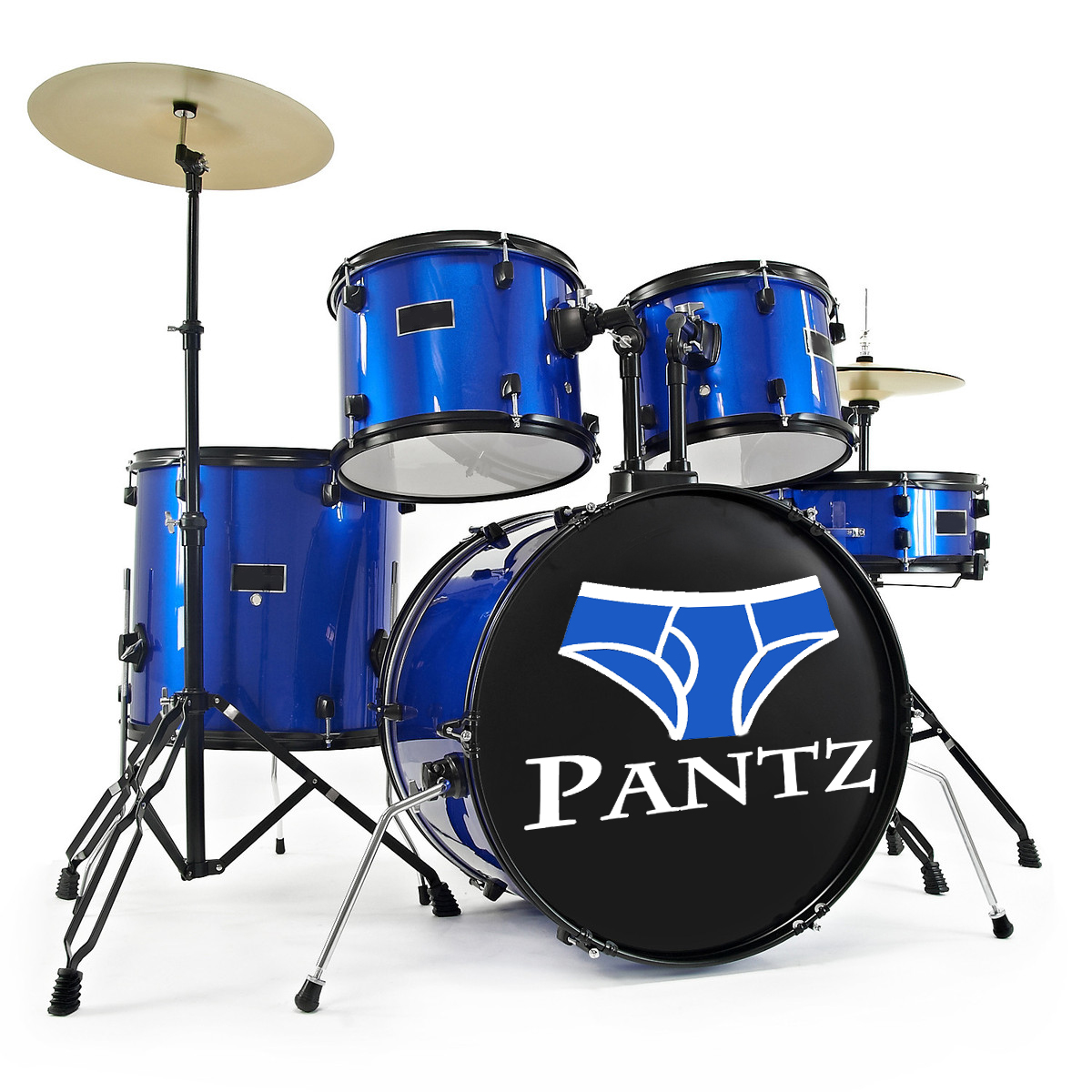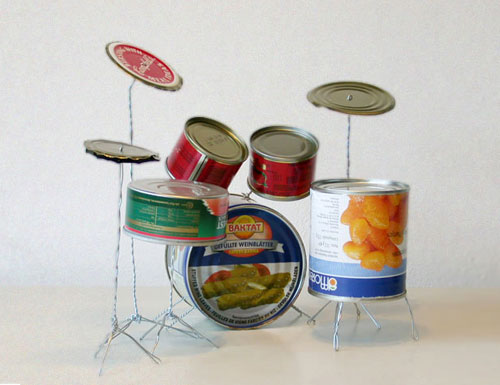
I have been teaching music in various forms on a variety of instruments for over twenty years now. One of the things that I have always considered to be one of my responsibilities is spending my time making sure, wherever possible, that my students are paired up with the best instruments at the best prices, to fit within their respective budgets. This is a service that I not only extend to my own students, but to pretty much anyone who asks for advice on the matter: this frequently involves exchanging details with relative strangers who, upon hearing what I do for a living, say “oh, could you recommend a [insert variety of musical instrument] for me to buy for [insert name of child] for their [insert special occasion] preferably for less than about [inset preposterously small number] quid/euros/dollars (delete as appropriate)?”
I have never asked for any money for this service, I have never received any commission, and to say I have probably spent an entire month of my life doing this would be a very conservative estimate. Per request I would ordinarily spend a whole evening online researching the best options, and I’d normally do this at least half a dozen times a year. Pre-Internet, I would have spent considerably more time browsing “actual” music shops with, or on behalf of, students. I still do, whenever possible, but there are many more issues to look at with that; it’s a whole other blog post really.
Whenever I get tasked with finding an instrument for someone, I find myself wrestling with a number of parameters; it’s important to note at this point, that I’m specifically referring to the issues that arise when somebody is purchasing something for someone else: often it will be a parent buying for a child, sometimes a partner or friend for their other half etc. Musicians themselves rarely need encouragement to part with large sums of money for new gear: actually there’s a name for it – GAS = Gear Acquisition Syndrome: it’s just that unfortunately, musicians often struggle with having the “large sums of money” bit!
Here are some absolutes:
- Good quality new musical instruments are generally not cheap.
- Cheap musical instruments, even in the hands of professionals, nearly always sound significantly inferior to their better quality counterparts.
- A large motivating factor in the development of any musician is the enjoyment of the sound they are making.
- Good quality second hand instruments hold their value remarkably well.
- Poor quality musical instruments do not hold their value well!
The above points can all be summed up with a single statement:
If you buy your child a cheap drum kit, it’ll sound crap from day one, it’ll start falling apart before you’ve finished putting it together, they won’t want to play it because it’ll never sound as good as the ones they have seen/heard/played before, and ultimately they will be on an extremely fast track to quitting that instrument, never to play again! And good luck selling it on!…
This has recently been reinforced by an experience I had at a school I visit once a year. Last year a member of staff asked me for advice about buying a drum kit for her son: “I saw this [nasty generic branded] kit for sale in a shop, what do you think?” I recommended against that particular option citing many of the above reasons, took her email address and, after spending several hours online that same evening, sent her a list of alternatives. This year, when I returned to the same school, the aforementioned member of staff greeted me with another request: “I don’t suppose you might know anyone who’d be interested in buying a barely used [nasty generic branded] drum kit do you?” Needless to say, I offered no further assistance!
Now, I wouldn’t want anyone reading to this point to think that playing a musical instrument is only for the privileged “elite” that can afford to buy the highest quality instruments and the rest need not apply. That is not my experience, and certainly not my message! Actually, in this instance, privilege can be part of the problem: rushing out to buy an instrument the moment ‘Tarquin’ expresses an interest in playing it, is quite unlikely to have any positive outcome. With the younger student; I think waiting a while will create a real desire and, in turn, an appreciation of their instrument. When I say “a while”, I waited NINE years before buying the drum kit of my dreams! I had been saving for several years and my parents very graciously matched the amount I’d saved with a loan against the purchase, a loan I spent a few more years paying off. If, nine years prior to that, they’d gone out and bought me a kit; I doubt I’d still be playing today.
When you buy a musical instrument you are making an investment in your musical future, if it’s not up to the job it’s money down the drain. The phrase “buy cheap, buy twice” is particularly useful here. My advice would always be to wait initially. If a student is already having lessons then they probably also have fairly regular access to an instrument. While there is technically no upper limit to the amount of practice that can be done; in the early stages, little and often is ideal and if it only averages out at 10-15 mins a day, well that’s not too bad and probably as good as many teachers of more advanced students can hope for! Many schools’ music service providers normally have a loan/rental scheme which could be used at this stage if needs be. If purchasing a new instrument, most music shops and online retailers offer credit options if the outright cost is not something that you can manage in one go.
A far better plan is to buy second hand. My ‘go to’ for this is nearly always eBay, and sometimes forums or Facebook groups. There are numerous alternatives such as Gumtree and Pre-Loved etc, I just don’t have a wide experience of these. The advantages of buying second hand are that you’ll often end up dealing with other musicians who are just trying to fund their next purchase, and will have hopefully cherished the instrument for however long they’ve owned it. A few price/value dynamics may creep in so some haggling may take place, but I’ve always maintained this market will be far better for buyers rather than sellers, especially if the buyer is prepared to travel some distance as postage is not always an option. I once drove Wolverhampton to Rotherham return (in a horrible storm) to purchase a Bass Guitar I’d found on eBay, at about a fifth of the original RRP, and comfortably half if not a third of it’s current value!
I’d like to offer a few general pointers for how to go about finding the right instrument, I’d gladly offer more specific advice if required (just post any questions at the bottom of this post):
- Have an idea about what you’re looking for – with most instruments there will be half a dozen or so brands that I’d probably be on the lookout for, and the rest will mostly be chaff. The market is really flooded with far eastern brands which will invariably be pretty much the same product with one of several hundred generic name badges stamped on it. The majority of musical instrument output from that part of the world was built on a high volume, low cost basis, and it’s highly unlikely to do justice to anyone’s abilities.
- Do your research – find out about any specific issues that might exist with the particular models you’re looking at. For instance, in the land of the Drum Kits, I would claim that the Yamaha Stage Custom has been both the best and worst kit I have ever purchased: I bought a 1990’s example which is my ‘take anywhere’ kit. It sounds absolutely incredible and has never let me down; but then I bought a later model (the Absolute Nouveau) from when they were experimenting with a low mass lug system which was ostensibly plastic when it really should have been metal, and more than half the lugs snapped off within the first year of use! Spend a little time browsing online communities, forums and so on; don’t be afraid to ask questions, you’ll possibly encounter a little snobbery and light trolling, but most folk should be pretty helpful.
- Try to ascertain as much as you can about the seller – it’s known as due diligence in the business world; if you’re about to part with a considerable sum of money, you really need to make sure you’re not being scammed. eBay’s feedback system is pretty much infallible, but if you’re dealing through Facebook or a forum or similar, try to find out as much as you can from that community. DO NOT transfer funds direct! If you’re meeting up to exchange then you can at least see the product you’re buying first which helps, but be wary if it’s vintage gear; and usual rules about meeting strangers from the online world obviously apply.
- Leave appropriate feedback – This one’s obvious really, but a lot of people don’t make the effort. Hopefully whatever existing feedback structure there was, contributed to your considered purchase; so it would only be fair for you to pave the way for subsequent sales. The same applies if you’ve had a bad experience, but avoid flying off the handle and doing anything rash until you’ve hashed things out with the seller privately first. Courier companies (especially those that use ‘lifestyle couriers’) are often the root of ugly online disputes about delayed/missing/damaged goods.
So……in summary…….don’t buy cheap rubbish from a bargain store, catalogue shop or even music shop (as some are guilty of selling examples of the above!) and do your homework! A little time and money spent choosing the right instrument will reap long term benefits. A drum kit is for a considerable length of time, not just for Christmas!! 😉
If you have any stories to share on this subject, please post below…
…or if you’re seeking advice on a specific purchase, pop a link down and I’ll give it a ‘thumbs up’ or ‘thumbs down’
Check back and/or follow us on facebook/twitter for future blog posts.





Hi Dan,
Sound advice,Dan.I always tell people to buy the best they can afford and go for top name brands and look for good quality second hand gear.Also good cymbals,they have kittens when they see the price tag,like k zildgen etc.
I picked up my Ludwigs for £400 way back now worth about £1600 just for the shells!
Have a Happy Christmas,best wishes George and Pat N.
Dan Dan Dan, what wholesome advice from a thoroughly wholsome chap!
Keep up the good work.
Rob
Thanks for the comments George and Rob, really appreciate the positive feedback… especially from two highly respected stalwarts of the drumming community! 🙂